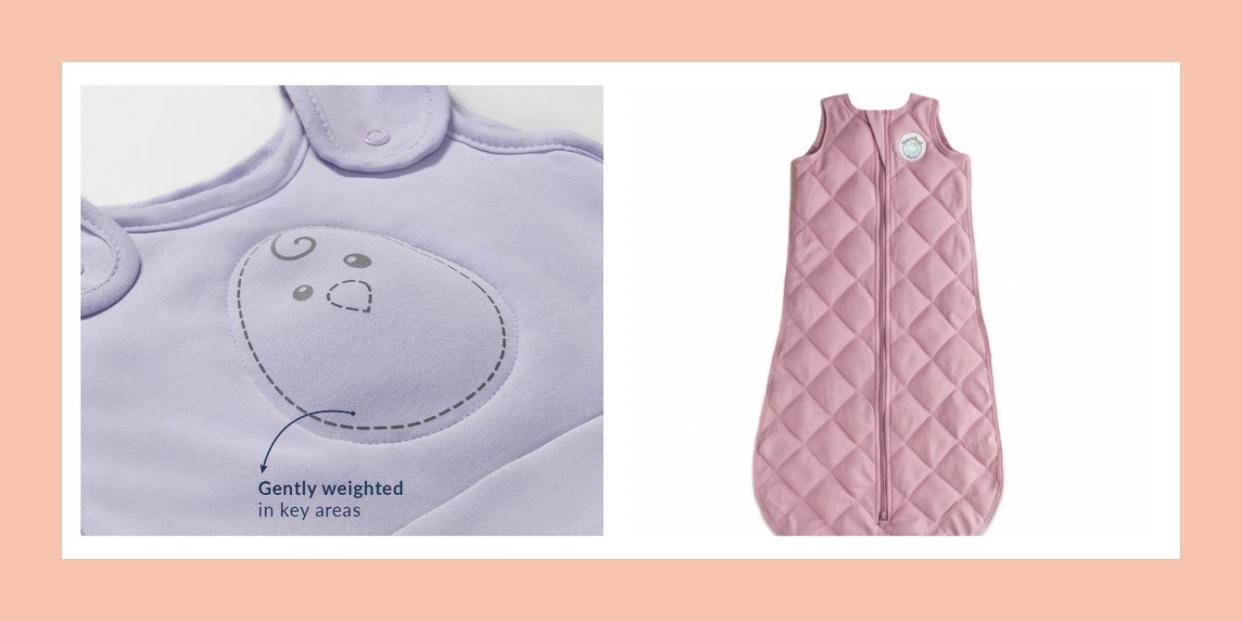Mass retailers have pulled weighted infant sleepwear from shelves due to safety concerns

As weighted sleep products—including blankets, pillows, and even eye masks—have grown in popularity to help combat anxiety and insomnia among kids and adults, pediatric health experts and lawmakers alike have expressed concern over the safety of weighted infant sleepwear, including sleep sacks, blankets, and swaddles. Now, mass retailers are pulling the products from shelves, citing a lack of credible evidence that they are safe.
According to Consumer Reports, retailers like Target, Walmart, Amazon, and Babylist have all removed weighted infant products from their lineup. Last year, the American Academy of Pediatrics (AAP) issued a letter to the Consumer Product Safety Commission (CPSC) noting that these products should never be used, citing a lack of regulation, scientific testing, and/or safety standards before sale.
At the time, Rachel Moon, MD, professor of pediatrics at the University of Virginia in Charlottesville and works as the chair of the AAP’s task force on sudden infant death syndrome (SIDS) noted, “There’s no regulation of these. People assume that if something is on the market, somebody has deemed it safe.”
As of right now, there has been at least one infant death potentially linked to wearable weighted infant gear, but the experts all agree that it’s simply too risky a chance to take when it comes to safe sleep practices for your little one.
Why might these products be unsafe? They generally work by way of plastic beads sewn into the fabric, placing “gentle pressure” on baby’s chest, as manufacturer Nested Bean notes on their website. And while that pressure might provide a soothing, calming effect for adults, babies and children have not yet developed enough to support that type of pressure.
“When babies are first born, their ribcage is not rigid, and so it doesn’t take a lot of pressure to press on it and create obstruction there,” Dr. Moon explained. “It makes it harder for them to breathe, it makes it harder for their heart to beat properly if there’s pressure on there.”
The added pressure might make it difficult for them to maneuver themselves out of an unsafe sleeping position. Also, Dr. Moon points out that babies are not meant to sleep for such long stretches. “In terms of babies who die of SIDS, what we think is happening is that they can’t wake up; there’s a problem with their arousal,” she added. “If they get into a situation where they aren’t getting enough oxygen or have too much carbon dioxide in their system, a too-deep sleep can inhibit their ability to startle, wake, and restabilize their systems. When babies wake up in the middle of the night, that is actually protective.”
Experts are pleased that their concerns are being heard on a wider scale. “This is a strong first step, and infants deserve more,” Dr. Ben Hoffman, president of the American Academy of Pediatrics, said in a statement, as reported by NPR. “Exhausted parents shouldn’t have to become part-time product safety regulators, but our current system forces them to by allowing infant products onto the market without evidence they are safe.”
In 2022, the CPSC also issued a recall on certain children’s weighted blankets after two young girls, aged four and six, became entrapped beneath the weight of the product and lost their lives. Target was notified of four entrapments, including the two fatalities.
As with any concern, chatting with your pediatrician is always a great start. Hopefully stricter regulations and testing will help ensure that every product to hit the market is as risk-free as possible to protect little ones from any safety hazards, big or small.

